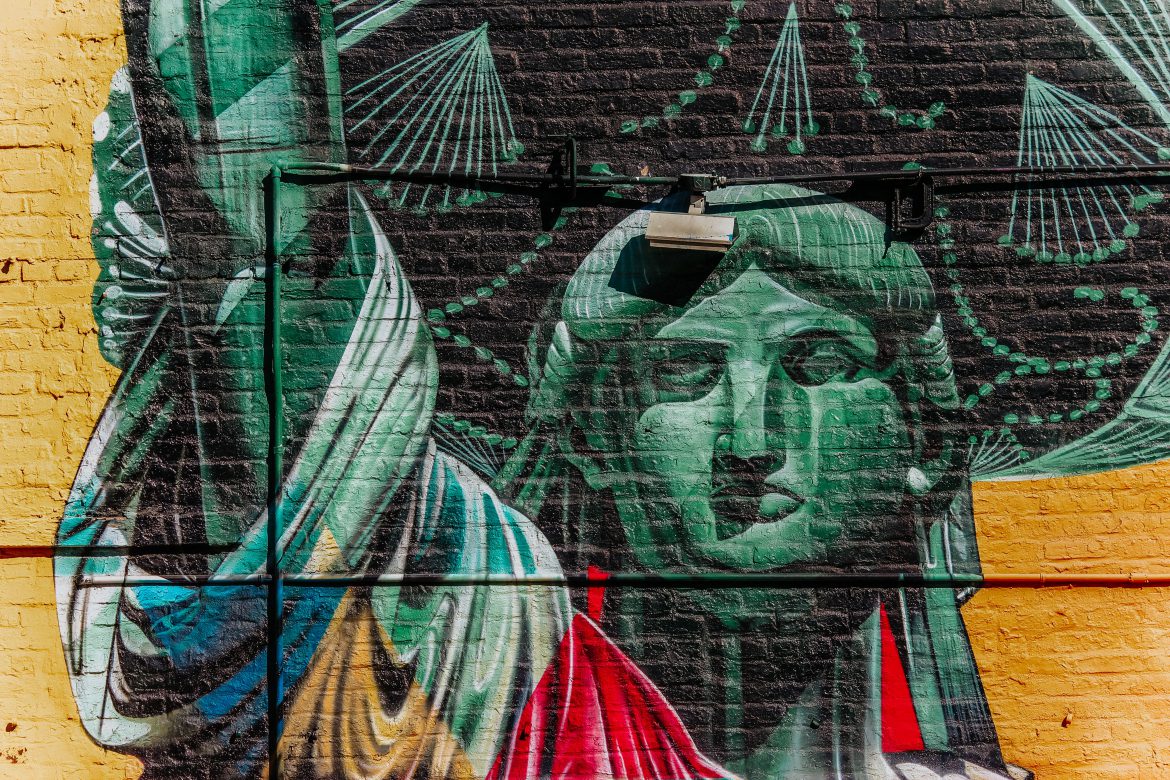During a 2019 visit to the Socialism in our Time Conference in New York, libertarian writer Elizabeth Nolan Brown noticed the differences in substance and style between that particular left-wing gathering and the libertarian conferences that she usually attended. The ‘old book-swap vibe’ of the James Baldwin School’s setting gave the Socialism in our Time Conference a certain ‘radical chic’ – which, for Nolan Brown, contrasted with the suit-and-tie Marriott Hotel vibe that many free-market conventions have.
It’s a small aesthetic detail, and not a surprising one: business attire for the pro-entrepreneurship crowd, art-school garb for the anti-consumerism crowd. It all adds up. But it paints a wider picture about the way the two groups are perceived in the culture.
From the perspective of many left-wing activists, libertarians are supporters of the status quo. The global order is capitalism, and we are champions of that global order. And sure, there is a surface-level truth to this: the growth of market liberalisation, and the human progress that it has brought around the globe, are at the essence of everything we love and defend. But are libertarians supporters of the status quo? Of an unchanging global order?
Of course not. We live for change, and we exist to bring about a freer future. And sure, we celebrate progress where it exists, but there is so much more to be done. Even in the freest countries in the West, we are pervaded by issues regarding police brutality and accountability, surveillance, crony mercantilism, immigration rights, abortion rights, regressive licencing laws, and a myriad other affronts to individual liberty. Established power makes these affronts possible, and we are here to shake this power at its core, and limit its grip on human flourishing.
And yet, to many within the sphere of radical politics, we are simply seen as defenders of that power: black tie-wearing guardians of the wealthy, sipping manhattans in skyscrapers; while the true revolutionaries wave placards on the streets below, shouting for change.
Of course, this isn’t the case everywhere. In more authoritarian parts of the world, where the torch of liberty is completely subversive and dangerous to hold, its appearances seem to dazzle even brighter. Protests in Hong Kong and Cuba inspired hope around the world. In Belarus, SFL activist Piotr Markielau’s persistent persecution by law enforcement for peaceful protesting serves as a brutal reminder of what is at stake, and how easy it is to take liberty for granted. Where liberty is under threat the most, its defenders appear the most radical, the most subversive, the most revolutionary.
But in countries with (relative) freedom, young firebrands who are passionate about shaking the world are often attracted to more unsavoury fringes of radical politics. See, for instance, the Maoist elements in 60s counterculture protests, or the Black Lives Matter Global Network Foundation’s recent defence of the Cuban regime. There is a persistent pattern of otherwise heartening movements against war and state violence being tainted by apologia for brutal foreign regimes and their ideologies.
Whether there’s an aesthetic element to this, or whether it’s just an all-or-nothing approach to opposing the status quo, it should leave libertarians feeling confused about why socialists are the ones considered ‘revolutionary’. Like the speakers that Nolan Brown watched at the conference – who rallied (rightfully) in favour of immigration reform, reproductive rights and other civil liberties, but then pushed more government control as a solution – they often seem like an equation that doesn’t quite add up correctly. Nolan Brown corrects the equation herself: “Yes, I really am interested in revolutionary politics. That’s why I’m a libertarian. Radical respect for empowering individuals over the state is where my revolutionary sympathies lie.”
This isn’t a call for libertarians to stop wearing ties and to start creating situationist artwork instead. The aesthetics don’t really matter – what matters is that we are radical, subversive and fierce in our defence of liberty. We want to inspire change in a significant way, and we should keep that spirit at the core of our purpose. Our revolution is a radical, world-shaking, subversive liberty.
